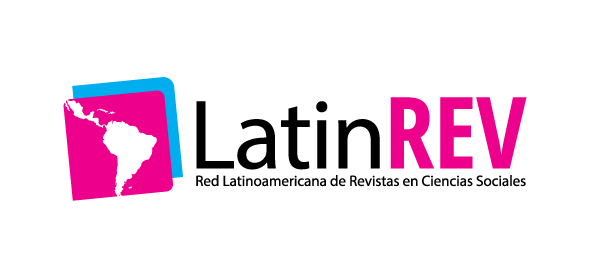Foreign aid, corruption and poverty. Paraguay’s case
DOI:
https://doi.org/10.70833/rseisa15item284Keywords:
Poverty, Foreign Aid, Corruption.Abstract
Theoretical proposals divide Foreign Aid’s effects into two streams. On one hand, the optimists who consider that with the additional income received by a country, they would reduce its poverty. On the other hand, the skeptics who affirm that the additional income only increases corruption. In Paraguay's case, Foreign Aid has been growing at a rate of 9% and corruption has been reducing, although at a very slow pace and on a very small scale, according to Transparency International reports. The research set out to corroborate whether Foreign Aid is associated with an increase or reduction of poverty from a macroeconomic perspective, and through a multiple regression model, it was possible to show that the increase in poverty was associated with an increase in Foreign Aid, as the skeptics pointed out. This investigation has not been able to corroborate the association of corruption with poverty or with Foreign Aid, so there is a gap to continue investigating either by the same or other authors.
Downloads
References
Alcaide, L., & Larrú, J. M. (2007). Corrupción, ayuda al desarrollo, pobreza y desarrollo humano. Boletín Económico de ICE, 37-58.
Banco Mundial. (16 de Octubre de 2019). Banco Mundial BIRF+AIF. Obtenido de https://www.bancomundial.org/es/country/uruguay/overview
Banco Mundial. (16 de Abril de 2020). BANCO MUNDIAL BIRF - AIF. Obtenido de https://www.bancomundial.org/es/topic/poverty/overview
Banco Mundial. (21 de Octubre de 2020). https://www.bancomundial.org/. Obtenido de https://datos.bancomundial.org/pais/paraguay
Banerjee, A., & Duflo, E. (2019). Repensar la Pobreza. Bogotá: Penguin Random House Grupo Editorial.
BBC News. (3 de Febrero de 2019). bbc.com. Obtenido de https://www.bbc.com/mundo/noticias-america-latina-47098176
Birdsall, N., Rodrik, D., & Subramanian, A. (2005). Cómo ayudar a los países pobres. Revista de Fomento Social, 623-641.
Chamorro, G. (2006). Corupción y ética en Paraguay. REVISTA Pasos, 19-23. Obtenido de http://bibliotecavirtual.clacso.org.ar/Costa_Rica/dei/20120710041502/corrupcion.pdf
Easterly, W. (2015). La Carga del Hombre Blanco. Barcelona: Penguin Random House Grupo Editorial S.A.U.
Easterly, W. (2015). La Carga del Hombre Blanco. Barcelona: Penguin Random House Grupo Editorial.
El independiente. (10 de Julio de 2020). https://www.elindependiente.com.py/. Obtenido de https://independiente.com.py/casos-emblematicos-de-corrupcion-en-paraguay/
Karlan, D., & Appel, J. (2011). ¡No basta con buenas intenciones! Barcelona España: Antoni Bosch editor, S.A.
Moyo, D. (2011). Cuando la ayuda es el problema. Madrid: Fundación FAES S.L.U.
Naciones Unidas. (2015). Objetivos de Desarrollo Sostenible. Obtenido de https://www.un.org/sustainabledevelopment/es/objetivos-de-desarrollo-sostenible/
Naciones Unidas. (21 de Octubre de 2020). https://www.un.org/es/. Obtenido de https://www.un.org/es/sections/issues-depth/poverty/index.html
Sachs, J. (2006). El fin de la pobreza. D. F. México: Random House Mondadori, S.A.
Sachs, J. (2013). Economía para un Planeta Abarrotado. México D.F.: Random House Mondadori.
Sen, A. (2000). Desarrollo y Libertad. Buenos Aires: Planeta Argentina S.A.I.C.
Serafini, V. (2019). Pobreza en Paraguay: Crecimiento Económico y Conflicto redistributivo.
Transparency International España. (31 de Enero de 2019). Transparency International España. Obtenido de https://medium.com/integridad-y-transparencia/c%C3%B3mo-se-calcula-el-%C3%ADndice-de-percepci%C3%B3n-de-la-corrupci%C3%B3n-f81f3827c5a5
Wapshott, N. (2011). Keynes vs Hayek. Barcelona: Centro Libros PAPF.
Yunus, M. (2019). Un mundo de tres ceros. Barcelona: Editorial Paidós SAICF.
Downloads
Published
How to Cite
License
Copyright (c) 2021 Benitez Britez

This work is licensed under a Creative Commons Attribution 4.0 International License.
Creative Commons Attribution License CC-BY
You are free to:
Share — copy and redistribute the material in any medium or format.
Adapt — remix, transform, and build upon the material for any purpose, including commercially.
Under the following terms:
Attribution — You must give appropriate credit, provide a link to the license, and indicate if any changes have been made. You may do so in any reasonable way, but not in any way that suggests that you or your use is endorsed by the Licensor.







